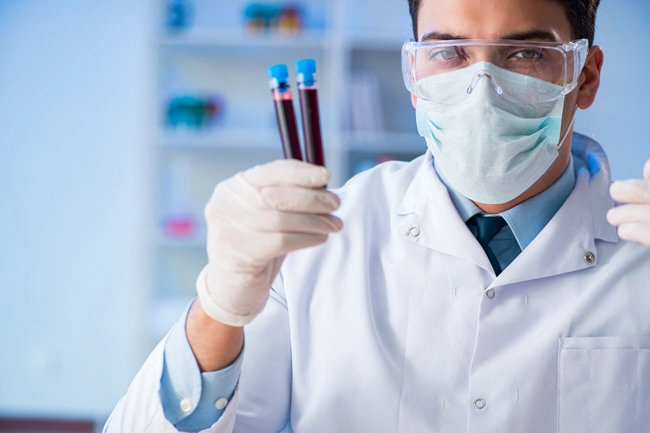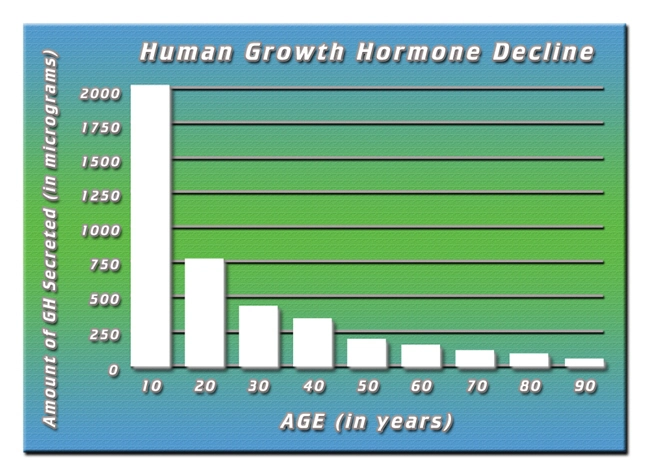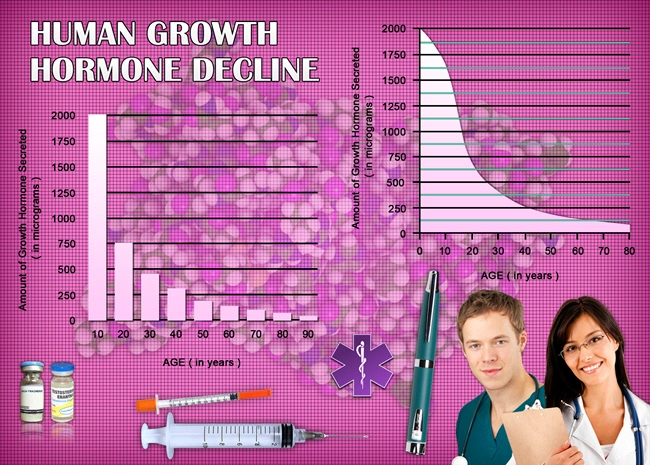
Introduction to Low Libido in Women
Low libido, or a diminished sexual desire, is a common concern that affects many women at various stages of their lives. While it is often considered a taboo subject, medical science has made significant strides in understanding the underlying causes and potential treatments for this condition. This article aims to shed light on the role of medical science in unraveling the mystery of low libido in women, providing valuable insights for American males who may be seeking to better understand and support their partners.
The Complex Nature of Female Sexual Desire
Female sexual desire is a complex interplay of biological, psychological, and social factors. Medical science has identified several key contributors to low libido, including hormonal imbalances, chronic health conditions, mental health issues, and relationship dynamics. By recognizing the multifaceted nature of female sexual desire, healthcare professionals can develop a more comprehensive approach to addressing low libido in their patients.
Hormonal Influences on Female Libido
Hormones play a crucial role in regulating sexual desire in women. Estrogen, progesterone, and testosterone all contribute to the delicate balance of female libido. Medical science has shown that fluctuations in these hormones, such as those experienced during menopause or pregnancy, can significantly impact a woman's sexual desire. Additionally, certain medical conditions, such as polycystic ovary syndrome (PCOS) or thyroid disorders, can disrupt hormonal balance and contribute to low libido.
The Impact of Chronic Health Conditions
Chronic health conditions, such as diabetes, heart disease, and cancer, can also affect a woman's sexual desire. Medical science has demonstrated that these conditions can lead to physical discomfort, fatigue, and emotional distress, all of which can contribute to a diminished libido. Furthermore, the medications used to treat these conditions may have side effects that impact sexual function. By addressing the underlying health issues and managing medication side effects, healthcare providers can help improve a woman's overall well-being and sexual desire.
The Role of Mental Health in Female Libido
Mental health plays a significant role in female sexual desire. Medical science has established a strong link between conditions such as depression, anxiety, and stress and low libido in women. These mental health issues can lead to a decreased interest in sex, difficulty achieving arousal, and challenges with orgasm. By addressing mental health concerns through therapy, medication, or lifestyle changes, women can experience improvements in their sexual desire and overall quality of life.
The Importance of Relationship Dynamics
Relationship dynamics also play a crucial role in female sexual desire. Medical science has shown that factors such as communication, emotional intimacy, and sexual satisfaction within a relationship can significantly impact a woman's libido. By fostering open and honest communication, couples can work together to address any underlying issues that may be contributing to low libido. Additionally, seeking the guidance of a sex therapist or couples counselor can provide valuable support and strategies for improving sexual desire and satisfaction.
Medical Interventions for Low Libido
Medical science has developed various interventions to help women with low libido. Hormone replacement therapy, particularly for women experiencing menopausal symptoms, can help restore hormonal balance and improve sexual desire. Additionally, medications such as flibanserin (Addyi) and bupropion (Wellbutrin) have been approved by the FDA to treat hypoactive sexual desire disorder (HSDD) in premenopausal women. However, it is essential for women to consult with their healthcare provider to determine the most appropriate treatment plan based on their individual needs and medical history.
Conclusion: Supporting Women with Low Libido
Understanding the role of medical science in addressing low libido in women is crucial for American males who wish to support their partners. By recognizing the complex interplay of biological, psychological, and social factors that contribute to female sexual desire, men can foster a more empathetic and supportive approach to their partner's sexual health. Encouraging open communication, seeking professional guidance when needed, and promoting overall well-being can all contribute to a healthier and more satisfying sexual relationship. As medical science continues to advance our understanding of low libido in women, it is essential for couples to work together to navigate this common challenge and maintain a strong, intimate connection.
Contact Us Today For A Free Consultation
Dear Patient,
Once you have completing the above contact form, for security purposes and confirmation, please confirm your information by calling us.
Please call now: 1-800-380-5339.
Welcoming You To Our Clinic, Professor Tom Henderson.

- Revitalizing Intimacy: Strategies for Overcoming Low Libido in Long-term Relationships [Last Updated On: February 23rd, 2025] [Originally Added On: February 23rd, 2025]
- Revolutionizing the Approach to Low Libido: Proactive Medical Science at Work [Last Updated On: March 2nd, 2025] [Originally Added On: March 2nd, 2025]
- Comprehensive Analysis of Factors Influencing Male Libido: Psychological, Physiological, and Therapeutic Perspectives [Last Updated On: March 3rd, 2025] [Originally Added On: March 3rd, 2025]
- Understanding and Addressing Low Libido in Men: Causes and Solutions [Last Updated On: March 4th, 2025] [Originally Added On: March 4th, 2025]
- Exploring Hormonal Influences on Male Libido and Treatment Options [Last Updated On: March 5th, 2025] [Originally Added On: March 5th, 2025]
- Comprehensive Guide to Understanding and Managing Low Libido in Men [Last Updated On: March 6th, 2025] [Originally Added On: March 6th, 2025]
- Managing Menopausal Libido: Understanding the Impact and Effective Solutions for Women's Health [Last Updated On: March 7th, 2025] [Originally Added On: March 7th, 2025]
- Understanding Low Libido in Men: Causes, Impacts, and Effective Management Strategies [Last Updated On: March 8th, 2025] [Originally Added On: March 8th, 2025]
- Understanding Low Libido in Men: Psychological Factors and Practical Solutions [Last Updated On: March 9th, 2025] [Originally Added On: March 9th, 2025]
- Unveiling the Link: Anxiety and Its Impact on Male Libido in the American Context [Last Updated On: March 11th, 2025] [Originally Added On: March 11th, 2025]
- Unraveling the Link Between Chronic Diseases and Low Libido in American Males [Last Updated On: March 12th, 2025] [Originally Added On: March 12th, 2025]
- Unveiling the Spectrum of Medical Therapies for Low Libido in Postpartum American Males [Last Updated On: March 13th, 2025] [Originally Added On: March 13th, 2025]
- Exploring Treatments for Low Libido in American Males: Hormonal, Psychological, and Innovative Approaches [Last Updated On: March 15th, 2025] [Originally Added On: March 15th, 2025]
- Exploring Physical Causes of Low Libido in American Males: Hormones, Health, and Lifestyle [Last Updated On: March 16th, 2025] [Originally Added On: March 16th, 2025]
- Natural Supplements for Low Libido in Men: Scientific Insights and Clinical Evidence [Last Updated On: March 19th, 2025] [Originally Added On: March 19th, 2025]
- Chronic Illness Impact on Libido: Medical Insights and Management Strategies for American Males [Last Updated On: March 19th, 2025] [Originally Added On: March 19th, 2025]
- Low Libido in Men: Causes, Medical Interventions, and Lifestyle Solutions [Last Updated On: March 19th, 2025] [Originally Added On: March 19th, 2025]
- Exploring Medical Causes and Solutions for Low Libido in American Men [Last Updated On: March 19th, 2025] [Originally Added On: March 19th, 2025]
- Medication-Induced Low Libido in American Men: Causes and Countermeasures [Last Updated On: March 19th, 2025] [Originally Added On: March 19th, 2025]
- Psychological Roots of Low Libido in American Males: Stress, Depression, and Beyond [Last Updated On: March 20th, 2025] [Originally Added On: March 20th, 2025]
- Diabetes and Libido: Understanding Impacts and Managing Low Sexual Desire in American Males [Last Updated On: March 20th, 2025] [Originally Added On: March 20th, 2025]
- Medications Impacting Male Libido: Causes, Effects, and Management Strategies [Last Updated On: March 21st, 2025] [Originally Added On: March 21st, 2025]
- Exploring Low Libido in Men: Causes, Treatments, and Future Innovations [Last Updated On: March 21st, 2025] [Originally Added On: March 21st, 2025]
- Low Libido in Middle-Aged Men: Causes, Treatments, and Importance of Professional Help [Last Updated On: March 21st, 2025] [Originally Added On: March 21st, 2025]
- Low Libido in American Men: Health Risks and Importance of Medical Intervention [Last Updated On: March 21st, 2025] [Originally Added On: March 21st, 2025]
- Low Libido and Depression: Understanding the Medical Connection in American Men [Last Updated On: March 21st, 2025] [Originally Added On: March 21st, 2025]
- Hyperthyroidism's Impact on Libido in American Males: Causes, Effects, and Management [Last Updated On: March 22nd, 2025] [Originally Added On: March 22nd, 2025]
- Chronic Pain and Low Libido: Understanding the Medical Connection in American Men [Last Updated On: March 23rd, 2025] [Originally Added On: March 23rd, 2025]
- Understanding and Managing Low Libido in American Men: A Holistic Approach [Last Updated On: March 23rd, 2025] [Originally Added On: March 23rd, 2025]
- Understanding and Overcoming Low Libido in Men: A Holistic Approach [Last Updated On: March 23rd, 2025] [Originally Added On: March 23rd, 2025]
- Understanding and Treating Low Libido in American Men: A Holistic Approach [Last Updated On: March 23rd, 2025] [Originally Added On: March 23rd, 2025]
- Postpartum Libido Decline in American Males: Causes and Multifaceted Solutions [Last Updated On: March 23rd, 2025] [Originally Added On: March 23rd, 2025]
- Understanding and Supporting Low Libido in Women Over 50: A Holistic Approach [Last Updated On: March 24th, 2025] [Originally Added On: March 24th, 2025]
- Low Libido in American Men: Causes, Impacts, and Solutions [Last Updated On: March 24th, 2025] [Originally Added On: March 24th, 2025]
- Alcohol's Impact on Libido: Physiological, Psychological, and Relational Effects in American Men [Last Updated On: March 24th, 2025] [Originally Added On: March 24th, 2025]
- Effective Treatments for Low Libido in American Males: A Comprehensive Guide [Last Updated On: March 24th, 2025] [Originally Added On: March 24th, 2025]
- Exploring the Vicious Cycle of Low Libido and Weight Gain in American Males [Last Updated On: March 24th, 2025] [Originally Added On: March 24th, 2025]
- Understanding and Enhancing Low Libido in Men: A Holistic Approach [Last Updated On: March 24th, 2025] [Originally Added On: March 24th, 2025]
- Understanding and Treating Low Libido in American Males: A Holistic Approach [Last Updated On: March 24th, 2025] [Originally Added On: March 24th, 2025]
- Understanding and Supporting Low Libido in Lactating Women: A Guide for American Males [Last Updated On: March 24th, 2025] [Originally Added On: March 24th, 2025]
- Understanding Low Libido in American Males: Causes, Risks, and Treatment Options [Last Updated On: March 24th, 2025] [Originally Added On: March 24th, 2025]
- Effective Medical Treatments for Boosting Libido in American Males [Last Updated On: March 25th, 2025] [Originally Added On: March 25th, 2025]
- Sudden Low Libido in American Men: Causes, Treatments, and Prevention Strategies [Last Updated On: March 25th, 2025] [Originally Added On: March 25th, 2025]
- Revitalizing Sexual Health: Understanding and Overcoming Low Libido in American Males [Last Updated On: March 25th, 2025] [Originally Added On: March 25th, 2025]
- Low Libido Treatments for American Males: Risks and Benefits Explored [Last Updated On: March 26th, 2025] [Originally Added On: March 26th, 2025]
- Understanding and Addressing Low Libido in American Males: Causes and Solutions [Last Updated On: March 26th, 2025] [Originally Added On: March 26th, 2025]
- Understanding and Treating Low Libido in American Males: Causes and Interventions [Last Updated On: March 26th, 2025] [Originally Added On: March 26th, 2025]
- Post-Surgery Libido Recovery: Hormonal, Psychological, and Physical Strategies for American Males [Last Updated On: March 26th, 2025] [Originally Added On: March 26th, 2025]
- Understanding Low Libido in American Males: Causes, Diagnosis, and Treatment Options [Last Updated On: March 26th, 2025] [Originally Added On: March 26th, 2025]
- Low Libido in American Males Post-Pregnancy: Causes, Impacts, and Solutions [Last Updated On: March 26th, 2025] [Originally Added On: March 26th, 2025]
- Low Libido in Male Athletes: Causes, Effects, and Holistic Management Strategies [Last Updated On: March 26th, 2025] [Originally Added On: March 26th, 2025]
- Low Libido in American Women: Causes, Impacts, and Tailored Treatment Strategies [Last Updated On: March 26th, 2025] [Originally Added On: March 26th, 2025]
- Boosting Male Libido: Diet, Exercise, and Lifestyle Strategies for Sexual Health [Last Updated On: March 26th, 2025] [Originally Added On: March 26th, 2025]
- Chronic Low Libido in American Males: Medical Signs and Underlying Causes [Last Updated On: March 27th, 2025] [Originally Added On: March 27th, 2025]
- Managing Age-Related Low Libido in American Men: Hormonal, Lifestyle, and Psychological Approaches [Last Updated On: March 27th, 2025] [Originally Added On: March 27th, 2025]
- Understanding Low Libido: Causes, Impacts, and Management Strategies for American Men [Last Updated On: March 27th, 2025] [Originally Added On: March 27th, 2025]
- Understanding and Treating Low Libido in American Males: A Comprehensive Guide [Last Updated On: March 27th, 2025] [Originally Added On: March 27th, 2025]
- Understanding and Treating Low Libido in American Men: A Comprehensive Guide [Last Updated On: March 27th, 2025] [Originally Added On: March 27th, 2025]
- Medical Patterns of Low Libido in Young American Males: Causes and Interventions [Last Updated On: March 27th, 2025] [Originally Added On: March 27th, 2025]
- Low Libido in American Males: Causes, Impacts, and Treatment Options [Last Updated On: March 28th, 2025] [Originally Added On: March 28th, 2025]
- Low Libido in Male Surgical Patients: Physiological, Psychological, and Treatment Insights [Last Updated On: March 28th, 2025] [Originally Added On: March 28th, 2025]
- Effective Medical Strategies to Restore Libido in American Males [Last Updated On: March 29th, 2025] [Originally Added On: March 29th, 2025]
- Understanding and Revitalizing Low Libido in American Men: Causes and Solutions [Last Updated On: March 30th, 2025] [Originally Added On: March 30th, 2025]
- Low Libido and Unhappiness in American Men: Causes, Impacts, and Solutions [Last Updated On: March 31st, 2025] [Originally Added On: March 31st, 2025]
- Managing Low Libido in American Males Post-Chemotherapy: Medical and Lifestyle Approaches [Last Updated On: March 31st, 2025] [Originally Added On: March 31st, 2025]
- Hypertension's Impact on American Males' Libido: Causes and Management Strategies [Last Updated On: April 1st, 2025] [Originally Added On: April 1st, 2025]
- Understanding and Combating Low Libido in American Men: Medical Causes and Strategies [Last Updated On: April 4th, 2025] [Originally Added On: April 4th, 2025]
- Antidepressants and Low Libido in American Males: Impacts and Management Strategies [Last Updated On: April 5th, 2025] [Originally Added On: April 5th, 2025]
- Rising Low Libido in American Males: Causes, Impacts, and Treatment Options [Last Updated On: April 5th, 2025] [Originally Added On: April 5th, 2025]
- Understanding and Treating Low Libido in American Males: Causes and Solutions [Last Updated On: April 7th, 2025] [Originally Added On: April 7th, 2025]
- Understanding and Boosting Low Libido in American Men: A Holistic Approach [Last Updated On: April 8th, 2025] [Originally Added On: April 8th, 2025]
- Libido in American Men: Impact of Medical Procedures and Management Strategies [Last Updated On: April 8th, 2025] [Originally Added On: April 8th, 2025]
- Medical Factors Impacting Low Libido in Women Under 40: A Comprehensive Overview [Last Updated On: April 8th, 2025] [Originally Added On: April 8th, 2025]
- Addressing Low Libido in American Males: Causes, Diagnostics, and Tailored Treatments [Last Updated On: April 9th, 2025] [Originally Added On: April 9th, 2025]
- Understanding Low Libido in American Males: Causes, Treatments, and Holistic Approaches [Last Updated On: April 9th, 2025] [Originally Added On: April 9th, 2025]
- Medical Causes of Persistent Low Libido in American Men: Hormones, ED, and More [Last Updated On: April 9th, 2025] [Originally Added On: April 9th, 2025]
- Medical Insights into Low Libido: Causes, Diagnosis, and Treatments for American Men [Last Updated On: April 10th, 2025] [Originally Added On: April 10th, 2025]
- Understanding and Managing Low Libido in American Males: A Holistic Approach [Last Updated On: April 10th, 2025] [Originally Added On: April 10th, 2025]









